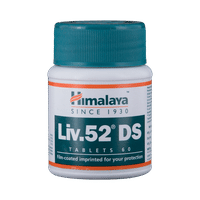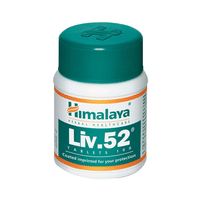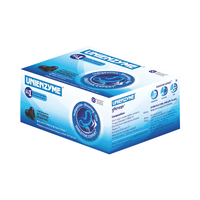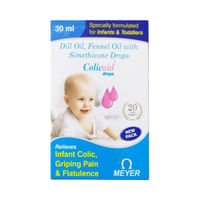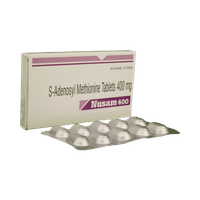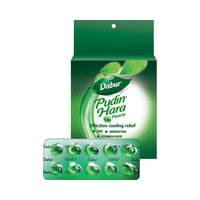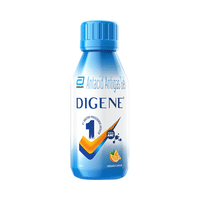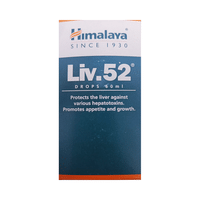Actimarin 70mg/150mg Tablet

food interaction for Actimarin
alcohol interaction for Actimarin
pregnancy interaction for Actimarin
lactation interaction for Actimarin
food
alcohol
pregnancy
lactation
Actimarin 70mg/150mg Tablet may be taken with or without food, but it is better to take it at a fixed time.
None
None
CAUTION
Actimarin 70mg/150mg Tablet may cause excessive drowsiness with alcohol.
UNSAFE
Information regarding the use of Actimarin 70mg/150mg Tablet during pregnancy is not available. Please consult your doctor.
CONSULT YOUR DOCTOR
Information regarding the use of Actimarin 70mg/150mg Tablet during breastfeeding is not available. Please consult your doctor.
CONSULT YOUR DOCTOR
SALT INFORMATION FOR Actimarin
Silymarin(70mg)
Uses
Silymarin is used in the treatment of Chronic liver disease and Liver cirrhosis.
How it works
Silymarin is obtained from milk thistle seeds (Silybum marianum). It has antioxidant and anti-inflammatory properties that protect liver cells from harmful effects of toxic chemicals (called free radicals) as well as some other medicines.
Common side effects
Back pain, Bloating, Diarrhea, Dizziness, Hair loss, Indigestion, Itching, Loss of appetite, Nausea, Rash, Stomach pain, Upset stomach
Ursodeoxycholic Acid(150mg)
Uses
Ursodeoxycholic Acid is used in the treatment of primary biliary cirrhosis and gallbladder stones.
How it works
Ursodeoxycholic Acid is a hepatoprotective medication. It works by reducing the amount of cholesterol in the blood and helps dissolve gallbladder stones that are composed mainly of cholesterol. It also improves liver enzymes, protects liver cells from injury caused due to toxic bile acids, and improves liver function.
Common side effects
Abdominal pain, Diarrhea, Hair loss, Itching, Nausea, Rash, Headache, Back pain, Abdominal discomfort, Allergy, Chest pain, Fatigue, Dyspepsia, Flatulence, Vomiting, Joint pain, Joint inflammation, Muscle pain, Insomnia (difficulty in sleeping), Bronchitis (inflammation of the airways), Cough, Sinus inflammation, Upper respiratory tract infection, Urinary tract infection
SUBSTITUTES FOR Actimarin
No substitutes foundFrequently asked questions FOR Actimarin
Silymarin
Q. What is Silymarin? What is it used for?
Silymarin belongs to a class of medicines known as hepatoprotective medicines which means that they protect the liver. It is used to treat chronic (long-standing) liver diseases. It is also used to treat severe cases of liver disease known as cirrhosis of the liver. Silymarin accelerates alcohol clearance from the blood and therefore also helps in the treatment of fatty liver due to alcoholism.
Q. How does Silymarin work for the liver?
Silymarin is obtained from milk thistle seed (Silybum marianum). Silymarin works by increasing the process of alcohol elimination from blood and tissues. This provides faster recovery from alcohol intoxication and as a result protects the liver from damage against harmful chemicals known as free radicals. Thereby, it helps to improve overall health of the liver.
Q. How to use Silymarin?
Silymarin should be taken with food. Take it in the dose and duration advised by the doctor. The dose will depend on the condition you are being treated for and your total body weight. It is advised to follow your doctor’s instructions carefully to get the maximum benefit of Silymarin.
Ursodeoxycholic Acid
Q. When should I take Ursodeoxycholic Acid?
The suitable timing of taking this medicine might differ depending upon your condition. Your doctor might instruct you to take 2 to 3 doses per day and suggest to take the last dose at bedtime. Ursodeoxycholic Acid should be taken with water milk and can be taken with food or after food. When prescribed for dissolving gallstones, it is usually suggested to be taken once daily at night. Ideally, it should be taken at a gap of 6 hours, for example at 8 am, 2 pm and 8 pm.
Q. Is Ursodeoxycholic Acid safe?
Ursodeoxycholic Acid is usually considered to be a safe and effective medicine. However, this medicine may have some common side effects, such as diarrhea. If diarrhea occurs, your doctor may reduce the dose and if it persists, your treatment may be discontinued. Additionally, using this medicine as a long-term therapy may also affect your liver enzyme levels. To keep a check on this, your doctor will keep monitoring your liver enzyme levels regularly. Despite these minor side effects, this medicine is supposed to be a good alternative to surgery in some patients with gallstones.
Q. How does Ursodeoxycholic Acid help the liver?
Ursodeoxycholic Acid acts on the liver and gets concentrated in the bile secreted from the liver. This, as a result, suppresses the synthesis and secretion of cholesterol by the liver, thereby decreasing the cholesterol levels in bile. This medicine also acts by stopping the intestines from absorbing the bile salts and cholesterol. So, the reduced cholesterol saturation in the bile from the liver leads to the gradual dissolving of cholesterol from gallstones, leading to a decrease in size and their eventual dissolution. It also reduces elevated liver enzyme levels by increasing the bile flow through the liver, hence protecting the liver cells.













